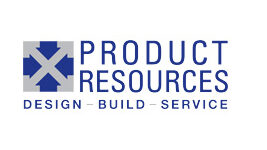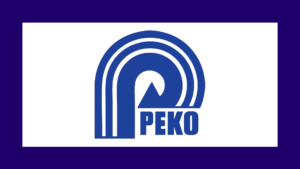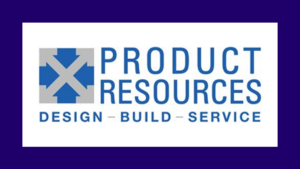How Contract Manufacturing Companies Fit in the Supply Chain

Product Resources, a FORGE Iron partner, is a contract manufacturing company with expertise in designing and building complex scientific, medical and industrial equipment. In this Tools of the Trade, Product Resources explains contract manufacturing companies’ position in the complex network we call the regional supply chain ecosystem.
The contract manufacturing industry has exploded over the past couple of decades.
It was inevitable. With new developments in technology come new products and many more improved products – all of which need to be designed, engineered, built, sold and serviced.
Contract manufacturing companies have played an important role in this growth. But that role can vary with each company and each project.
Products that might have been produced in-house in the past are now being outsourced because of the expanding technology demands of newer products.
Let’s take a look at the players in the manufacturing supply chain.
OEMs
The Original Equipment Manufacturer (OEM) is where it all begins. The OEM identifies the opportunity for a new product or product extension, conducts the research to assess viability, and then sets out to create that product.
In some cases, the product is designed, engineered and manufactured internally. This of course depends on the available resources – whether the OEM has the capability and the bandwidth to produce the product.
In many cases though, this work (or parts of it) is outsourced to another company.
OEMs will outsource for a variety of reasons. They may not have the expertise to produce the product themselves. They may not have the necessary technology or equipment. Employees, equipment and production floor space may be dedicated to other projects.
The OEM may outsource the product design, engineering, manufacturing, inventory and support services individually– or it may look for one company to handle it all.
Product Design and Engineering Firms
Product design and engineering firms are most often focused on the conceptual design and ID of the product. Services may include engineering, but most do not have the ability to provide manufacturing outside of the alpha prototype they design.
New products need to be designed not just for form (design), but for manufacturability as well.
This calls for engineering expertise dedicated solely to how will the product be manufactured efficiently, with a high level of reliability and ease of service. This is where contract manufacturers come in.
Contract Manufacturer
A contract manufacturer is responsible for the actual production of the product. This can vary from an automated production process to a manual assembly process. Manual assembly is often a complex process involving multiple components and systems.
Contract manufacturing companies are often defined by the types of products they produce and the manufacturing process they utilize.
Some contract manufacturers serve as a one-stop service by also providing product design and engineering services as well as post-production services such as inventory management, service and legacy product support.
This simplifies outsourcing management for the OEM client who only has to deal with one outside company to get a product produced.
Sub-Contract Manufacturer
Most products call for the assembly of multiple components and systems – which are often manufactured elsewhere.
The contract manufacturer is usually responsible for finding their own sub-contractors for specified items. Selection will be based on quality, price, lead times and available capacity.
While subcontractors play a seemingly small part of the process, any disruption with even one subcontractor can cause major delays in the finished product.
Raw Materials Supplier
Manufacturers of all types rely on raw materials to supply the production process. Having access to a consistent source of high quality raw materials and a predictable price is essential to product planning and development.
Inventory Management
Finished products need to be stored and distributed on demand. This calls for an inventory management service which can be handled by the OEM or the contract manufacturer.
Distribution
Products vary in how they are distributed. Some are shipped directly from the contract manufacturer to the customer’s central warehouse. Others are shipped to regional distribution centers.
Installation and Training
Larger products and complex products may require a field service team to provide installation and training assistance to buyers. This is a service that is provided by only some contract manufacturers.
Maintenance, Calibration and Repair
Product support is needed for the long-term life of a product line. Customers need to know their investment will be protected through regular maintenance, calibration and repair. Only a select few contract manufacturers can provide this service.
Product Replacement and Replacement Parts
Even the best products need to be replaced on occasion. Replacing parts is more common. But being able to provide those replacements quickly and without hesitation goes a long way in building your customer reputation.
This is a significant, but often overlooked, step in the supply chain. Only some contract manufacturers will provide this service.





